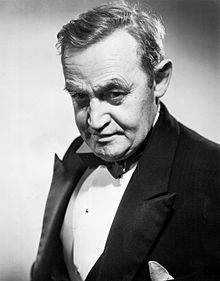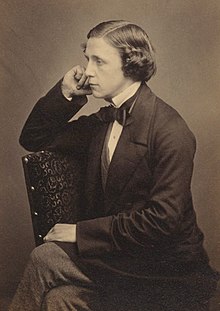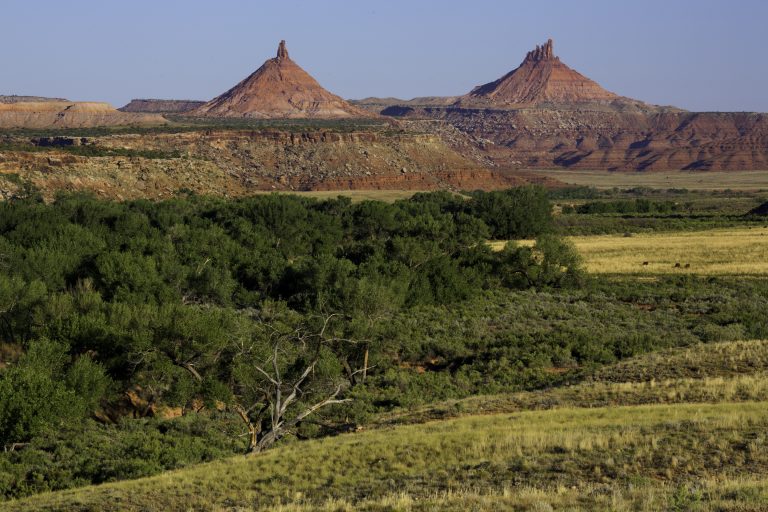January 14 is the 14th day of the year in the Gregorian calendar. There are 351 days remaining until the end of the year (352 in leap years).
In the 20th and 21st centuries the Julian calendar is 13 days behind the Gregorian calendar, thus January 14 is sometimes celebrated as New Year’s Day (Old New Year) by religious groups who use the Julian calendar.
Holidays
- Christian Feast Day:
- Feast of Divina Pastora (Barquisimeto)
- Feast of the Ass (Medieval Christianity)
- National Flag Day (Georgia)
- National Forest Conservation Day (Thailand)
- Old New Year
- Ratification Day (United States)
- Siderealwinter solstice celebrations in South and Southeast Asian cultures; marking the transition of the Sun to Capricorn, and the first day of the six months Uttarayana period. (see April 14):
- Magh Bihu (Assam)
- Maghi (Punjab, Haryana, Himachal Pradesh)
- Makar Sankranti (India)
- Maghe Sankranti (Nepal)
- The first day of Pongal, a Tamil New Year. (Tamil)
- Uttarayan (Uttarakhand, Gujarat and Rajasthan)
History
In 1236, King Henry III of England marries Eleanor of Provence.
In 1301, Andrew III of Hungary dies, ending the Árpád dynasty in Hungary.
In 1343, Arnošt of Pardubice becomes the last bishop of Prague and, subsequently, the first Archbishop of Prague.
In 1539, Spain annexes Cuba.
In 1639, The “Fundamental Orders“, the first written constitution that created a government, is adopted in Connecticut.
In 1724, King Philip V of Spain abdicates the throne.
In 1761, The Third Battle of Panipat is fought in India between the Afghans under Ahmad Shah Durrani and the Marathas.
In 1784, American Revolutionary War: Ratification Day, United States – Congress ratifies the Treaty of Paris with Great Britain.
In 1786, Meshech Weare, American lawyer and politician, 1st Governor of New Hampshire (b. 1713) dies. He was an American farmer, lawyer and revolutionary statesman from Seabrook and Hampton Falls, New Hampshire. He served as the first President of New Hampshire from 1776 to 1785. On January 5, 1776, New Hampshire became the first American state to adopt a formal constitution. Weare was a leader in the drafting of this document, which served as the basic instrument of government for the ensuing eight years or until the adoption of a second and more permanent constitution in 1784. Under this constitution, there was no established executive, and the legislature was supreme. In practice, executive power was delegated to a Committee of Safety consisting of eight or ten legislative leaders. This committee had full power to act on behalf of the government while the legislature was not in session. After a brief interval, Weare was elected chairman of the Committee of Safety and served in this capacity throughout the Revolution.
In 1814, Treaty of Kiel: Frederick VI of Denmark cedes Norway to Sweden in return for Pomerania.
In 1822, Greek War of Independence: Acrocorinth is captured by Theodoros Kolokotronis and Demetrios Ypsilantis.
In 1858, Napoleon III of France escapes an assassination attempt.
In 1872, Greyfriars Bobby, Scottish dog (b. 1856) dies. Greyfriars Bobby was a Skye Terrier who became known in 19th-century Edinburgh for supposedly spending 14 years guarding the grave of his owner until he died himself on 14 January 1872. The story continues to be well known in Edinburgh, through several books and films, and a prominent commemorative statue and nearby graves act as a tourist attraction. The best-known version of the story is that Bobby belonged to John Gray, who worked for the Edinburgh City Police as a night watchman. When John Gray died he was buried in Greyfriars Kirkyard, the graveyard surrounding Greyfriars Kirk in the Old Town of Edinburgh. Bobby then became known locally, spending the rest of his life sitting on his master’s grave. In 1867 Lord Provost of Edinburgh, Sir William Chambers — who was also a director of the Scottish Society for the Prevention of Cruelty to Animals — paid for Bobby’s licence, and gave the dog a collar now in the Museum of Edinburgh. Bobby is said to have sat by the grave for 14 years. He died in 1872 and was buried just inside the gate of Greyfriars Kirkyard, not far from John Gray’s grave. A year later, Lady Burdett-Coutts had a statue and fountain erected at the southern end of George IV Bridge to commemorate him.
In 1898, Lewis Carroll, English author, mathematician, and photographer (b. 1832) died on 14 January 1898 at his sisters’ home, “The Chestnuts” in Guildford, of pneumonia following influenza. He was two weeks away from turning 66 years old. His real name was Charles Lutwidge Dodgson. He was an English writer, mathematician, logician, Anglican deacon and photographer. His most famous writings are Alice’s Adventures in Wonderland, its sequel Through the Looking-Glass, which includes the poem Jabberwocky, and the poem The Hunting of the Snark, all examples of the genre of literary nonsense. He is noted for his facility at word play, logic, and fantasy. There are societies in many parts of the world (including the United Kingdom, Japan, the United States, and New Zealand) dedicated to the enjoyment and promotion of his works and the investigation of his life.
In 1907, An earthquake in Kingston, Jamaica kills more than 1,000.
In 1911, Roald Amundsen‘s South Pole expedition makes landfall on the eastern edge of the Ross Ice Shelf.
In 1920, John Francis Dodge, American businessman, co-founded the Dodge Automobile Company (b. 1864) dies.
In 1933, The controversial “Bodyline” cricket tactics used by Douglas Jardine‘s England peak when Australian captain Bill Woodfull is hit over the heart.
In 1938, Norway claims Queen Maud Land in Antarctica.
In 1943, World War II: Japan begins Operation Ke, the successful operation to evacuate its forces from Guadalcanal during the Guadalcanal Campaign.
In 1943, World War II: Franklin D. Roosevelt and Winston Churchill begin the Casablanca Conference to discuss strategy and study the next phase of the war.
In 1943, World War II: Franklin D. Roosevelt becomes the first President of the United States to travel by airplane while in office when he travels from Miami to Morocco to meet with Winston Churchill.
In 1950, The first prototype of the MiG-17 makes its maiden flight.
In 1952, NBC’s long-running morning news program Today debuts, with host Dave Garroway.
In 1953, Josip Broz Tito is inaugurated as the first President of Yugoslavia.
In 1954, The Hudson Motor Car Company merges with Nash-Kelvinator Corporation forming the American Motors Corporation.
In 1957, Kripalu Maharaj was named fifth Jagadguru (world teacher) after giving seven days of speeches before 500 Hindu scholars.

In 1957, Humphrey Bogart, American actor (b. 1899) dies of cancer. He was an American screen actor whose performances in such iconic 1940s film noirs as The Maltese Falcon, Casablanca, and The Big Sleep, earned him the legacy of cultural icon. In 1999, the American Film Institute ranked Bogart as the greatest male star in the history of American cinema. Over his career he received three Academy Award nominations for Best Actor, winning one. Bogart began acting in 1921 after a hitch in the U.S. Navy in World War I and little success in various jobs in finance and the production side of the theater. Gradually he became a regular in Broadway shows in the 1920s and 1930s. When the stock market crash of 1929 reduced the demand for plays, Bogart turned to film. His first great success was as Duke Mantee in The Petrified Forest (1936), and this led to a period of typecasting as a gangster with films such as Angels with Dirty Faces (1938) and B-movies like The Return of Doctor X (1939). Bogart’s breakthrough as a leading man came in 1941, with High Sierra and The Maltese Falcon. The next year, his performance in Casablanca raised him to the peak of his profession and, at the same time, cemented his trademark film persona, that of the hard-boiled cynic who ultimately shows his noble side. Other successes followed, including To Have and Have Not (1944); The Big Sleep (1946); Dark Passage (1947) and Key Largo (1948), with his wife Lauren Bacall; and The Treasure of the Sierra Madre (1948); In a Lonely Place (1950); The African Queen (1951), for which he won his only Oscar; Sabrina (1954); and The Caine Mutiny (1954). His last film was The Harder They Fall (1956). During a film career of almost 30 years, he appeared in 75 feature films.
In 1960, The Reserve Bank of Australia, the country’s central bank and banknote issuing authority, is established.

In 1961, Barry Fitzgerald, Irish actor (b. 1888) dies. He was an Irish stage, film, and television actor. He won an Oscar as Best Supporting Actor for Going My Way (1944). He was born William Joseph Shields in Walworth Road, Portobello, Dublin, Ireland. He was the older brother of Irish actor Arthur Shields. He went to Skerry’s College, Dublin, before going on to work in the civil service, while also working at the Abbey Theatre. By 1929, he turned to acting full-time. He was briefly a roommate of famed playwright Sean O’Casey and starred in such plays as O’Casey’s Juno and the Paycock and the premiere of The Silver Tassie. Fitzgerald went to Hollywood to star in another O’Casey work, The Plough and the Stars (1936), directed by John Ford. He had a successful Hollywood career in such films as The Long Voyage Home (1940), How Green Was My Valley (1941), And Then There Were None (1945), The Naked City (1948), and The Quiet Man (1952). Fitzgerald achieved a feat unmatched in the history of the Academy Awards: he was nominated for both the Best Actor Oscar and the Best Supporting Actor Oscar for the same performance, as “Father Fitzgibbon” in Going My Way (1944). (Academy Award rules have since been changed to prevent this.) He won the Best Supporting Actor Award; an avid golfer, he later broke the head off his Oscar statue while practicing his golf swing. (During World War II, Oscar statues were made of plaster instead of gold, owing to wartime metal shortages.) He returned to live in Dublin in 1959.
In 1967, Counterculture of the 1960s: The Human Be-In, takes place in San Francisco, California‘s Golden Gate Park, launching the Summer of Love.
In 1969, An accidental explosion aboard the USS Enterprise near Hawaii kills 27 people.
In 1972, Queen Margrethe II of Denmark ascends the throne, the first Queen of Denmark since 1412 and the first Danish monarch not named Frederick or Christian since 1513.
In 1973, Elvis Presley‘s concert Aloha from Hawaii is broadcast live via satellite, and sets the record as the most watched broadcast by an individual entertainer in television history.
In 1975, Teenage heiress Lesley Whittle is kidnapped by Donald Neilson, aka “the Black Panther”.
In 1999, Toronto Mayor Mel Lastman becomes the first mayor in Canada to call in the Army to help with emergency medical evacuations and snow removal after more than one meter of snow paralyzes the city.
In 2000, A United Nations tribunal sentences five Bosnian Croats to up to 25 years for the 1993 killing of over 100 Muslims in a Bosnian village.
In 2004, The national flag of the Republic of Georgia, the so-called “five cross flag“, is restored to official use after a hiatus of some 500 years.
In 2005, The Huygens probe lands on Saturn‘s moon Titan.
In 2010, Yemen declares an open war against the terrorist group al-Qaeda.
In 2011, Former president of Tunisia, Zine El Abidine Ben Ali flees his country to Saudi Arabia after a series of street demonstrations against his regime and corrupt policies, asking for freedom, rights and democracy, considered as the anniversary of the Tunisian Revolution and the birth of the Arab Spring.
In 2012, The Pirate Party of Greece is founded, on the model of the Swedish Pirate Party.
In 2013, Hockey India League, a professional field hockey league in India launched.
In 2014, In the Greensboro (NC) News Record, the President of the Reidsville (NC) chapter of the United Daughters of the Confederacy blasts the City of Reidsville for replacing its Confederate monument with modern “art.”
In 2015, According to Education Week, Massachusetts school systems are the best in the nation. Massachusetts eighth graders led the nation in mathematics aptitude, with 18.2% achieving advanced-level performance on math sections of the National Assessment of Educational Progress, more than twice the national rate. A greater percentage of the state’s fourth and eighth graders were also proficient in both math and reading than in any other state. Strong performance among young state residents clearly led to further success, as more than 70% of 18 to 24 year olds were either enrolled in college or had already completed a post-secondary degree, the highest proportion in the nation. As in other states with strong schools, Massachusetts residents are financially well-off. Nearly 70% of children lived in families with incomes at least 200% of the poverty level, the fourth highest proportion in the country. Tennessee didn’t make the top ten.
In 2015, Tommy Caldwell and Kevin Jorgeson completed the first-ever free climb of the Dawn Wall of El Capitan in Yosemite National Park.
In 2016, 2016 Jakarta Attacks: Some locations in Jakarta, Indonesia attacked by bomb, including a gun fight between suspected terrorist and local police in Jalan MH Thamrin across Sarinah building.





